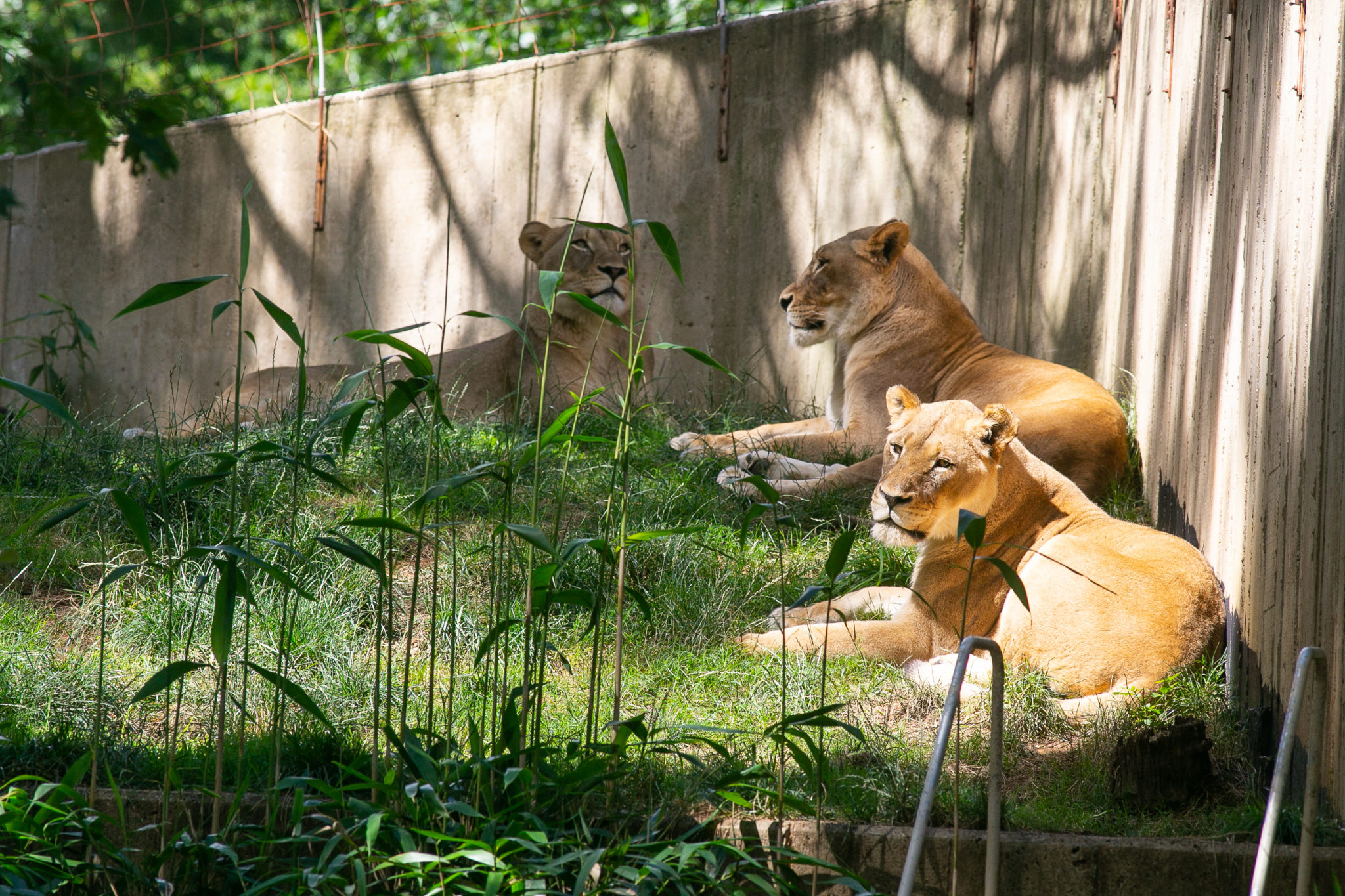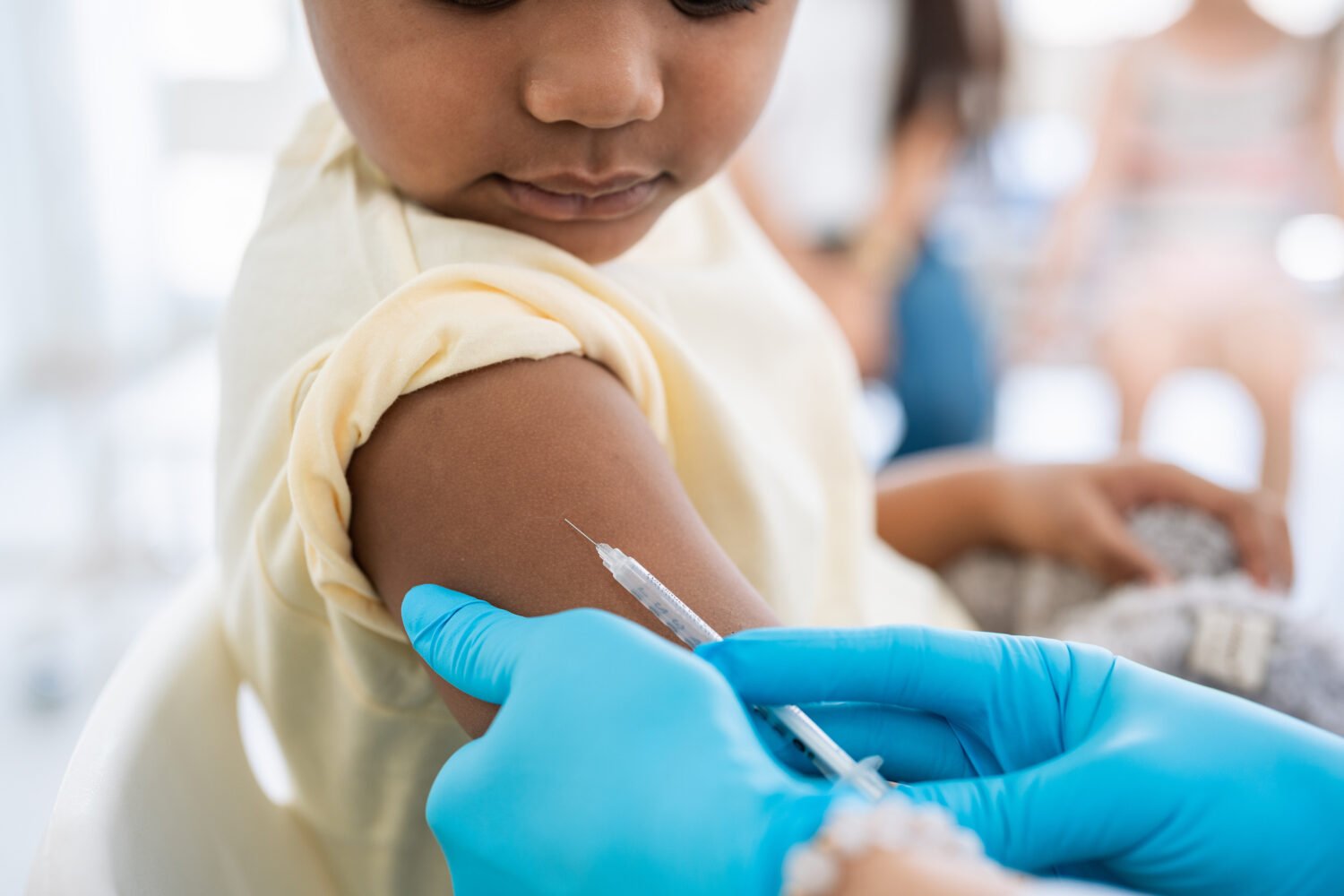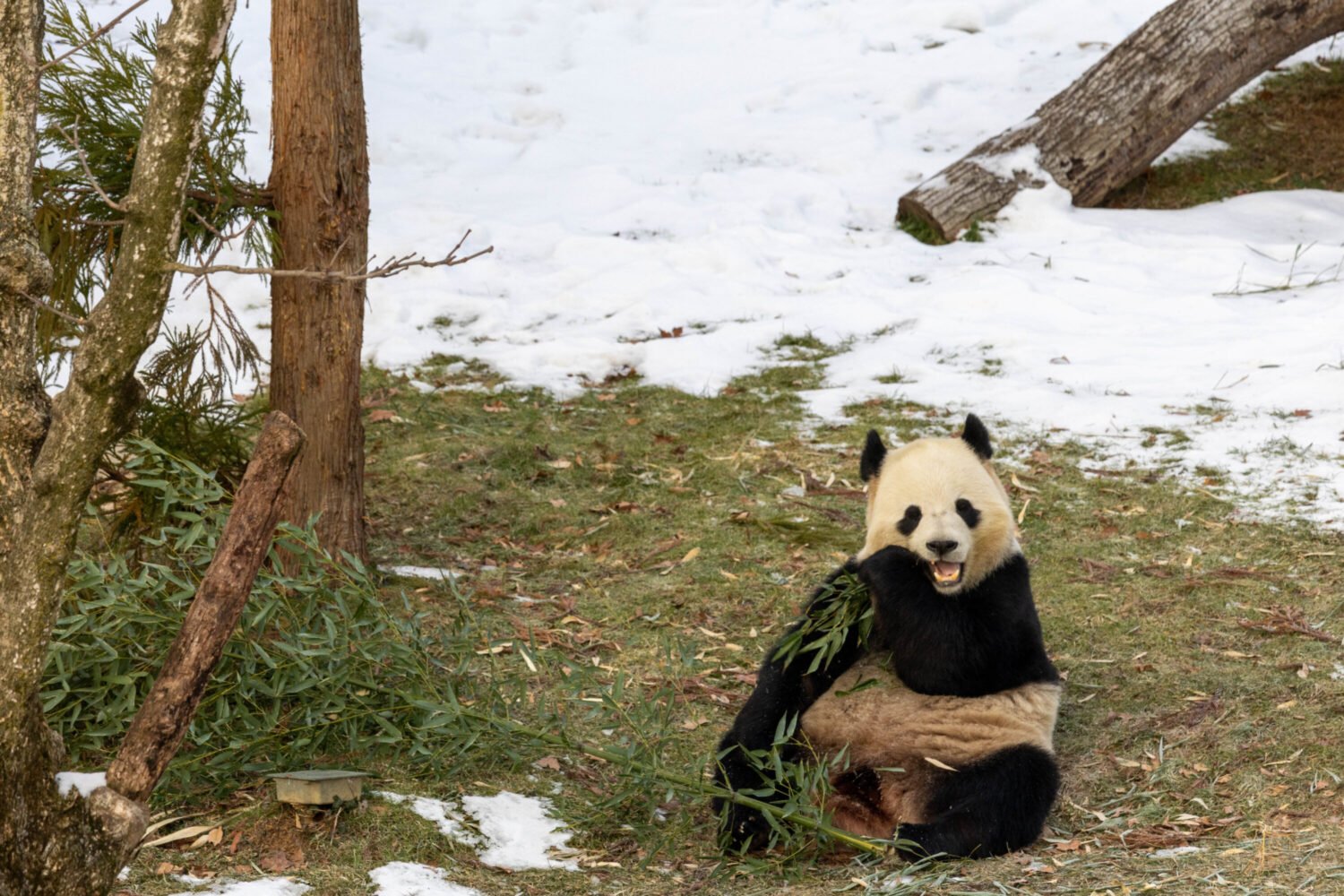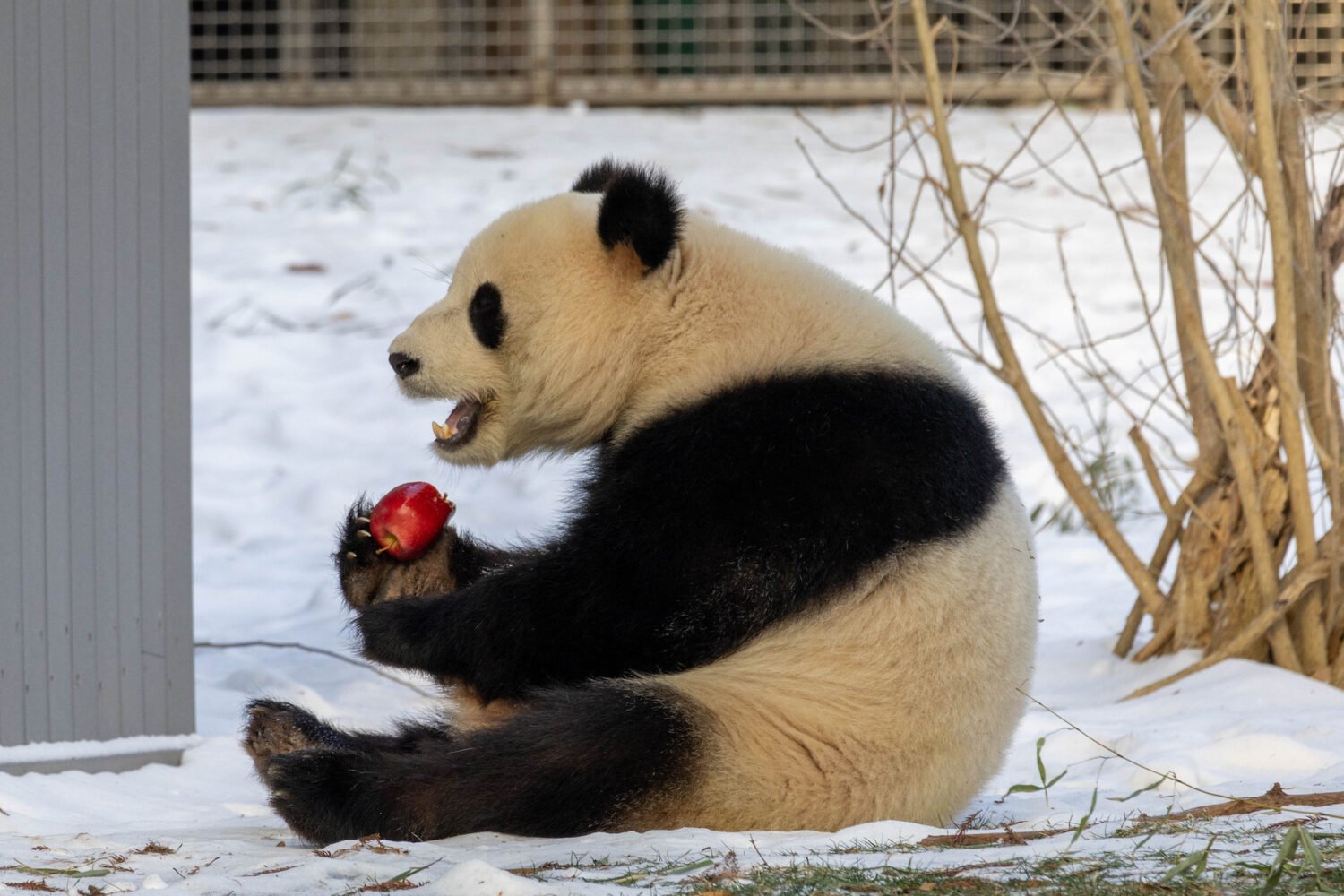The National Zoo considered euthanizing 17-year-old lion Shera last month, because she developed kidney disease after contracting Covid-19.
The zoo has been treating all nine of its great cats for the coronavirus since mid-September. However, Shera was the only one classified as critically ill, and has had to be anesthetized three times so that veterinary staff could rehydrate her, administer antibiotics and other medications, and perform blood tests.
Shera and two other lions were put under for the first time on Saturday, September 18, due to lack of appetite, dehydration, and abnormal respiration. Bloodwork on the two seven-year-old males, Shaka and Jumbe, was normal. But Shera’s results showed she was in renal failure. The National Zoo’s chief veterinarian, Donald Neiffer, tells Washingtonian he and his staff had “survivability concerns about her.”
On Tuesday, September 20, Shera was anesthetized for a second time. Her bloodwork showed her kidneys had not improved. At that point, Neiffer says the veterinary and husbandry staffs discussed whether they should wake her back up or euthanize her. “The fact that we were having that discussion while an animal was on the table—that’s pretty serious,” he says.
But while the blood results weren’t better, they also weren’t any worse. And Shera had not developed any additional signs of kidney failure, such as mouth ulcers and vomiting. So, the team ultimately decided to bring her out of anesthesia. She was put under one more time, the following day, to receive more fluids.
Neiffer says kidney failure is not uncommon for an animal Shera’s age. However, the zoo happened to have performed routine bloodwork on Shera about a week before she was diagnosed with Covid, and it came back normal. “So, cause and effect, if she had not acquired Covid, she would not have entered renal failure,” says Neiffer. He adds that dehydration could’ve also played a role in her kidney disease, and that some of the medications she’s taking to treat the virus can also be hard on the kidneys.
By Thursday, September 23, to the huge relief of her caretakers, Shera began eating and drinking on her own, and behaving more normally. “I walked into the building that Friday morning and took a look at her,” says Neiffer, “and other than a little crustiness around her nose, if I was a first-time visitor, I would’ve said, ‘What’s the problem?’ ”
In fact, says Neiffer, all nine great cats now appear to be recovering from the virus. He says he got a text from a colleague just last night “saying, ‘All the animals are acting 100-percent normal.’ …It’s awesome.”
Neiffer adds that he can’t rule out having to anesthetize one of the cats again before the ordeal is over, though. Going forward, he says veterinary staff will be on the lookout for potential cardiac issues known to develop after Covid.
And he says Shera will likely never fully recover from her kidney disease. “Her last bloodwork showed some mild improvement. …She’s doing gangbusters,” he says. “Whether or not she returns to normal, kidney-wise, I doubt it. But I also have seen a number of large cats that have kidney values that you would not consider to be conducive with a normal life, and they do just fine. …They go on to die years later from something else. So, we’re very, very happy. We’re finally very optimistic that everybody’s coming out of this.”
Aside from Shera, five other lions and three tigers at the National Zoo are being treated for Covid. For eight of the nine, symptoms have included lethargy, refusal to eat or drink, coughing, sneezing, and nasal discharge. All eight were treated for presumptive secondary bacterial pneumonia. “They got hit hard,” says Neiffer. One tiger, Metis, has been asymptomatic.
Last week, two of the cats tested negative for Covid for the first time since being diagnosed. “I hope to have more cats this week [who test] negative,” says Neiffer. “Things are progressing really, really well.”



















